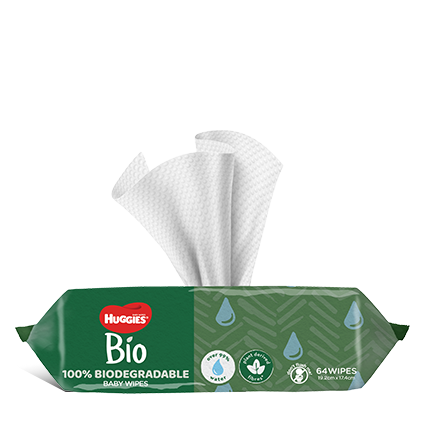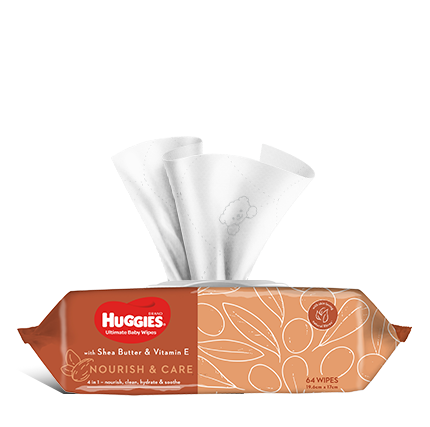It is common for parents to feel a sense of overwhelming relief when their babies are around 2 weeks old. Getting through labour and childbirth is a big concern for most women, even if they don’t always acknowledge it to themselves or others. There can also be a sense of disappointment that the excitement of pregnancy is over, particularly for women who loved being pregnant.
Although it sounds really strange, many women develop a crush on their obstetrician and go through a mini grieving process when this relationship comes to its natural end. The rapport and sense of trust which develops over pregnancy does foster closeness with care providers. Rationalising this is one thing, processing the emotions can be another thing entirely.
What’s that noise?
At 2 weeks old, your baby will have become a little more familiar to you. The noises it makes, it’s feeding and sleeping habits won’t be so new and foreign. Everyday, your baby will settle a little more into its newly independent life. But you will be frequently reminded of just how vulnerable it is and how much it relies on you to meet every need.
Feeding
If you are breastfeeding , you could still find yourself being a little awkward. The standard comment that breastfeeding shouldn’t be painful is simply not true for a lot of women. Even when the baby is correctly attached, it can take weeks for nipple sensitivity to settle. The initial discomfort and feeling of the nipple stretching as the baby latches on, tends to settle as each feed proceeds.
Generally, blisters, cracks or trauma to the nipple are due to incorrect attachment. This needs to be addressed as early as possible to prevent further damage and to correct any complications.
Your breasts will still be adjusting to meet your baby’s feeding needs. Avoid trying to fit your baby into a feeding schedule or routine at this early age. Instead, aim to feed them as they demand it and when they look hungry. Doing this will help your breastmilk supply to establish and reduce the likelihood of either of you developing problems.
If you are having issues with attaching your baby or any other aspect of feeding, check with your early childhood nurse, a lactation consultant or the Australian Breastfeeding Association .
Sleeping
Your baby is likely to still spend most of its day sleeping and feeding. It is common for young babies to have a couple of wakeful, alert periods each day. Sometimes, you may find your baby cries for apparently no reason which can be very distressing. As parents we want to soothe and comfort our babies but it can be hard to know what the best way to do this is. Walking and holding them close, rocking, cuddling, swaddling or wrapping, even a deep warm bath are some of the more effective ways of helping newborns to soothe .
The safest place for your 2 week old baby to sleep will be in their own safe cot or bassinette, beside your bed. You’ll probably find you want your baby to be close to you anyway and need the reassurance of being able to see them and check they are ok. Far from sleep being a quiet time, babies can be very noisy when they are sleeping. Grunting, groaning, whimpering, snuffling and moving around are all common sleeping behaviours and are still considered normal.
Behaviour
A lot of your baby’s energy will be going into their feeding at this age. If they were born premature, they may be even more sleepy than normal and you could find yourself needing to wake them for feeds. Jaundice, being born small and pregnancy complications can also cause newborn babies to be sleepy. Try gently unwrapping your baby to wake them if you need to for feeds.
Some babies are very alert from birth and are more wakeful, bright and responsive than others. There is a large variation between individual temperaments and behaviour in babies. It can be very clear right from birth, just the type of little person they are going to be.
You will undoubtedly find yourself looking for similarities and differences between your baby and yourself. Genetics accounts for a large percentage of inherited traits and characteristics, but remember your baby will be their own unique individual.
Nappies
Of all the repetitive care you will provide for your baby, changing their nappies will be one of the most time consuming. Set up a change area which is practical, has everything you need in easy reach and is easily cleaned. Work out a streamlined disposal system for used nappies which won’t mean you have to make a dozen trips to the bin every day. If you are laundering nappies, avoid lifting heavy buckets full of water. The ligaments in your back and pelvis will still be loose, making it easy to cause muscular damage.
Cord care
By now your baby’s cord stump will have separated and dropped off. Your baby may still have a small, raw area in its navel where the cord was attached. Air drying will help this area to heal. Occasionally, a small spot of blood may be on your baby’s nappy or singlet. Extra careful cleaning and drying with a cotton bud after bathing will help it to dry out.
Hygiene
Bath time can be stressful, but it can also be a lovely time to connect and communicate with your baby. Some parents prefer to shower with their newborn and this is fine too. Just remember that babies can be very slippery and stepping in and out of a shower holding one can be risky. A safer alternative is for one parent to bring the baby into the shower, and then pass them out again once showering is finished.
Get into the habit of washing your hands after nappy changing. Using an antiseptic hand wash is not necessary but it is important to lather, rinse and then dry your hands carefully. Hand lotion at the sink will be a prompt to remind you to use it and help prevent your hands from drying out.
What about mum?
Tiredness could be catching up with you by now. The adrenaline and excitement which has fuelled your energy for the last couple of weeks could be settling down. It is so important for new mothers to rest and sleep whenever they can. You will have heard this many times but it really is true. Being woken several times during the night takes its toll. Even if you haven’t had an afternoon lie down for years, then it is time to revisit them. If you are breastfeeding, having a day time rest can help boost milk supply for the evening feeds.
Physical recovery
If you had a vaginal delivery, you will find you are less sore this week. Healing is usually very quick after birth and although you may have felt quite bruised and aching last week, by now your body should be healing. You will still have some blood loss for a couple of weeks but this should soon settle down. If you start loosing blood clots, have an increase in your loss, feel you have developed a temperature, pelvic pain or your loss does not smell right, then check with your doctor or midwife.
If you have had a caesarean section or assisted delivery, your body will take longer to heal. Avoid straining, driving or heavy lifting until you have been given the all clear from your doctor. The general recommendation is to delay any vigorous or strenuous activity and to resume normal activities six weeks after birth.
Emotions
Don’t expect yourself to be on an even keel around now. New mothers are entitled to feel teary and emotionally fragile and you will be not exception. If your labour and delivery were not what you had planned for or you don’t feel as well supported at home as you would like, then this will be a stressful time.
Hormonal fluctuations, tiredness, fitting into a new role and adapting to the changes in your relationship with your partner will all take their toll. Be kind on yourself and don’t try to be an expert when it comes to looking after your new baby. It will take time, practice and lots of patience to feel as if you aren’t on a steep learning curve with everything at this stage.
What about dad?
Dad could be looking as if he’s an old hand at baby care by this stage, especially if you have had children before. He is likely to be your major support, both in an emotional and practical sense. But he cannot know how to best help you if you don’t tell him or give him some clues.
Be specific about what you’d like him to do and expect this may be different to the way you do things.
The reality of having a baby in the house will undoubtedly be hitting home for him as well this week. The newborn period is generally a time when fathers tend to do the running around jobs, shopping and errands. If you are usually the one who does this you may need to go through some of the finer details. Lists can be helpful, so can using the internet to do shopping, bill paying and general household business.
This is a time for you to both work smart and conserve as much energy as you can for looking after your new baby .
For more information see Baby weeks .
Last Published* May, 2024
*Please note that the published date may not be the same as the date that the content was created and that information above may have changed since.




















